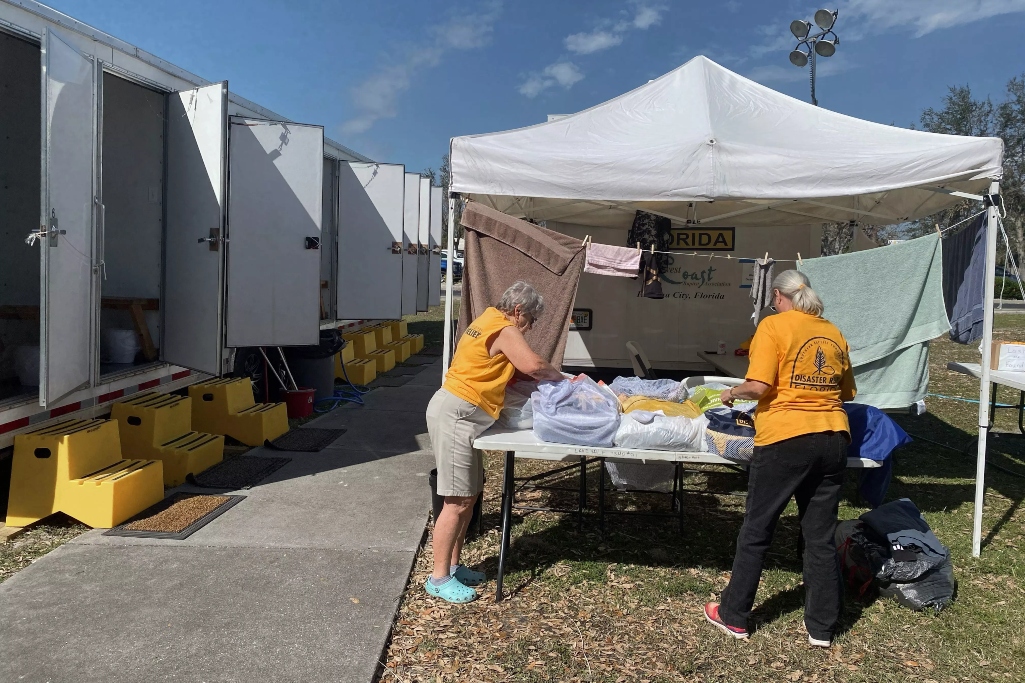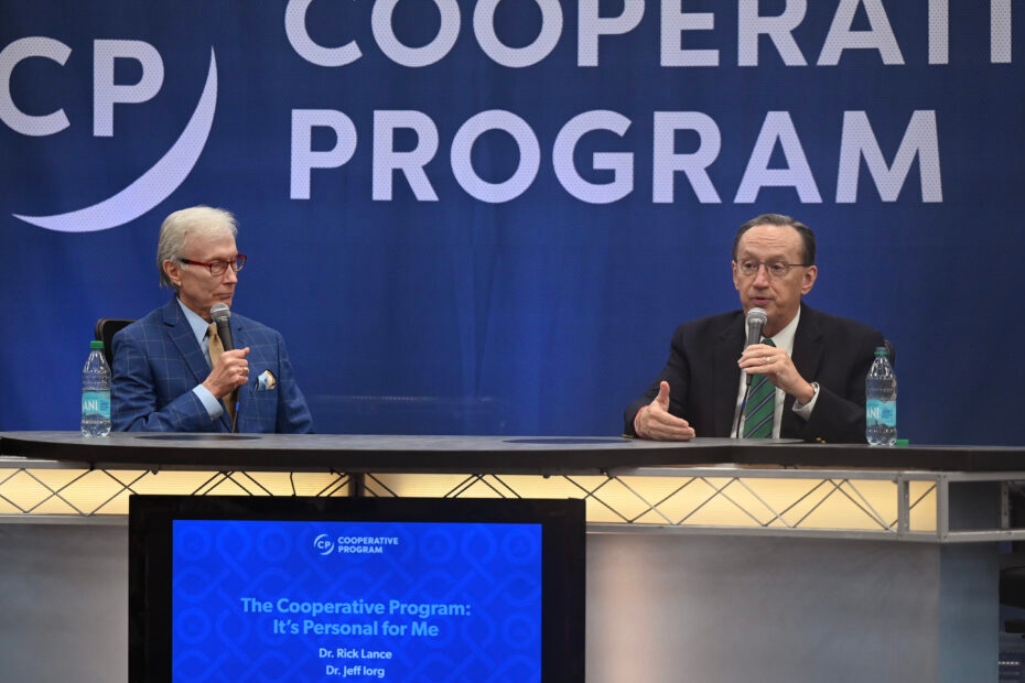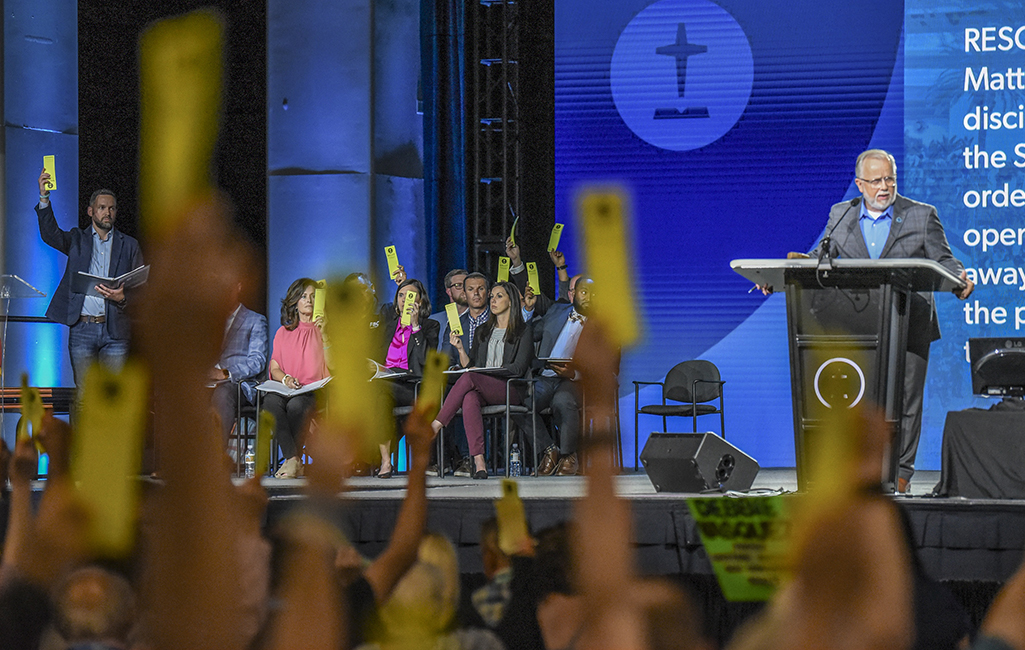
As of Oct. 6, Southern Baptist Disaster Relief volunteers in Southwest Florida have provided 430-plus people with showers and done 140-plus loads of laundry.
EDITOR’S NOTE – October is Cooperative Program Emphasis Month in the Southern Baptist Convention.
The overwhelming majority of Southern Baptists won’t personally clean out a single home in the city that bore the brunt of Hurricane Ian’s fury Sept. 28. Personally, they won’t extend a single plate of food nor help wash one pair of socks.
But their contribution to make those things happen is extremely personal.
“The Cooperative Program really is the lifeline that helps provide resources and equipment so that we can respond,” said Coy Webb, crisis response director for Send Relief.
“I hope Southern Baptists realize that when they see a kitchen trailer capable of serving 60,000 meals a day, that’s their trailer. Their gifts make that kind of equipment possible.”
Storm destruction brings images of feeding trailers and chainsaw teams, but Webb noted the impact of another group.
“People don’t know how important the laundry area is,” Webb said. “Imagine if everything you own was under water. Imagine the cost of going to the laundromat and washing all of that – clothes, curtains, bedspreads, everything.
“That can be very costly, especially if you’re a single mother or an elderly person on a fixed income.”
The time spent at a laundry trailer also leads to gospel conversations, he added.
“It’s a great opportunity for our volunteers to have a few minutes to talk with those folks and pray with them,” Webb said.
The Cooperative Program is the funding engine whereby Southern Baptists collectively send financial gifts toward numerous ministries and efforts such as seminary training, international and domestic missions work, church planting, benevolence ministries and disaster relief response. October is Cooperative Program Emphasis Month.
Various hurricanes have made their mark on Southern Baptist Disaster Relief. In 1992, Andrew ushered in a new era and scope of the ministry. Katrina brought on a call for more volunteers during a yearslong recovery effort. Sandy led to widespread work on the upper Atlantic coast.
Ian is projected to be one of the costliest storms in Florida’s history, with estimates ranging from $63-$75 billion in damages. The equipment for digging out and rebuilding homes – and lives – will be crucial.
The addition of skid steers equipped with a grapple attachment have proven invaluable, said Scottie Stice, director of Disaster Relief for the Southern Baptists of Texas Convention (SBTC).
“They are a tremendous, valuable tool and save us a lot of labor in moving debris,” Stice said. “They are essential to our chainsaw operations.”
Teams have also been using single-man lifts to access broken limbs high in trees.
“Instead of having to climb a tree or walk past one, it lets us park there and reach up to get the limbs out. We can also cut a damaged tree if it needs to come straight down to make sure it doesn’t fall toward a home.”
Such heavy equipment isn’t purchased, but rented by state disaster relief ministries at a premium rate through a national agreement arranged between Send Relief and Herc Rentals.
“We have also set up funding through Send Relief to assist with rental costs of needed equipment,” Webb said.
States also add their own equipment through their budgets, as the SBTC did with the addition of a 16-foot freezer/cooler trailer.
“It has a freezer compartment in the front with a cooled section in the back,” Stice said. “It’s brand new and we’re sending it today [Oct. 5] to Florida.”
Send Relief is looking to increase the availability of those trucks through the rental agreement as well as purchasing them, Webb said.
About 1,000 Southern Baptists are currently responding to Ian, with Webb saying that number could eventually approach 1,500. If the volunteer count for future events grows, it would lead to more rescue boats and training for those operating them.
That would match a vision shared by North American Mission Board President Kevin Ezell after observing groups like the Cajun Navy.
“Dr. Ezell had seen several volunteer groups go out after Hurricane Harvey and rescue others,” Webb said. “We’re excited about that new kind of ministry and realize it’s going to require intensive training, but it will be a great opportunity to provide needs in a time of disaster.”
The fiscal year ended last month with national Cooperative Program topping $200 million for the first time since 2008. That support lends itself to more ways for Southern Baptists to be a light in the darkness, Webb said.
“We appreciate their generosity, year after year,” he said. “We’re able to be in those locations because people said, ‘Yes.’ It helps us bring practical help, but also the hope of the gospel.”
(EDITOR’S NOTE – Scott Barkley is national correspondent for Baptist Press.)


